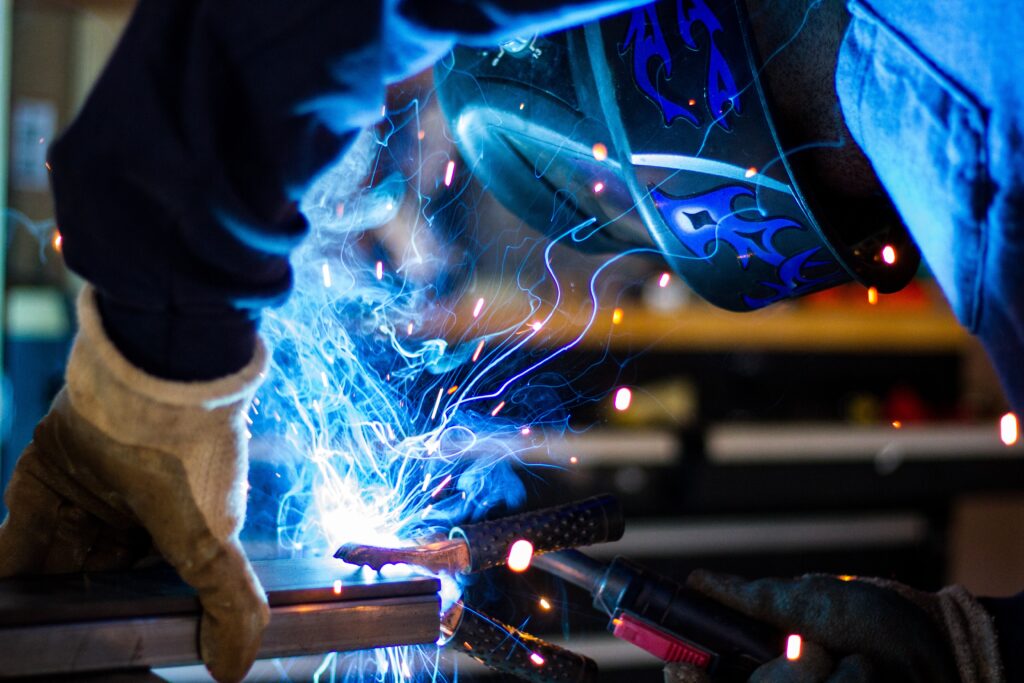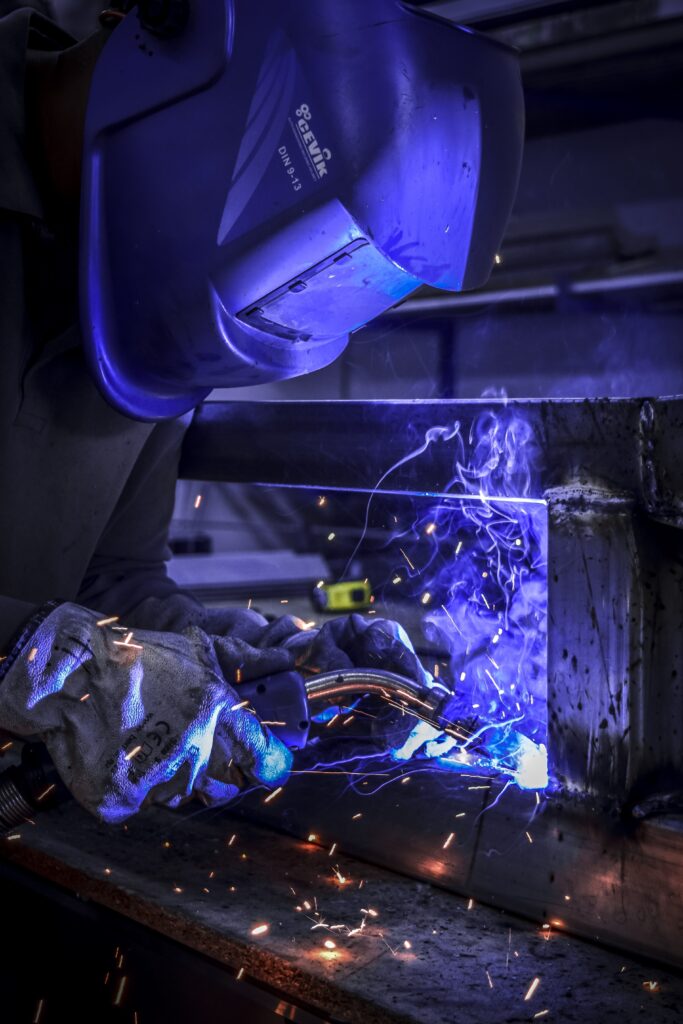In the ever-advancing world of technology and trade skills, it’s essential to not overlook the value of practical, hands-on abilities. That’s precisely the focus of the article, “Is Welding A Valuable Skill?” This piece takes a keen look at welding, uncovering its importance in our contemporary society. By detailing what welding is and its applications in various industries, the article analyses the worth of this often undervalued skill. As you read on, you’ll learn about the relevance and potential benefits of welding skills in your personal and professional life. Prepare yourself for a stimulating exploration into the high-demand world of welding.

Understanding Welding
Welding is a valuable and intricate skill that involves the fusion of materials.
Definition of welding
Welding is a fabrication process that joins materials, usually metals or thermoplastics, by causing coalescence. This is often done by melting the workpieces and adding a filler material to form a pool of molten material that cools to become a strong joint.
Types of welding techniques
There are various types of welding techniques that you can use depending on the project at hand. These include Tungsten Inert Gas (TIG) welding, Metal Inert Gas (MIG) welding, Shielded Metal Arc Welding (stick welding), and Flux-Cored Arc Welding (FCAW). Each technique comes with its strengths and weaknesses, and each is tailored for different materials and conditions.
Brief history of welding
Welding dates back to the Bronze age where small gold boxes were made by pressure welding lap joints together. As time progressed, advancements have been made in the tools used for welding, creating more efficient ways to bond and repair metals.
The Demand for Welders
Understanding the job market for welders gives you a glimpse of the importance of this skill set in today’s economy.
Current job market for welders
The current job market for welders is sizable. There is always a demand for skilled welders in industries such as construction, manufacturing, shipbuilding, and automotive repair among many others.
Future predictions for welding job market
Looking to the future, the welding job market is predicted to grow. As more technological advancements are made, the demand for skilled welders who can operate complex machinery and robotics is likely to increase.
Areas of high demand for welders
Areas of high demand for welders include sectors that rely heavily on metal structures. These sectors include construction, automotive, aerospace, and manufacturing industries.

Economic Benefits of Welding
Choosing a career in welding can provide significant economic benefits.
Average salary of welders
On average, welders can earn a competitive salary. The exact figure varies depending on the industry, location, and experience of the welder, but generally, the earning potential for welders is attractive.
Potential for advancement in the welding industry
Just like any other profession, there is potential for growth and advancement in the welding industry. As you master your craft and gain more experience, there are opportunities for promotion and increased earnings.
Job stability in welding
Job stability is another economic benefit of welding. Given that welding skills are required across various industries, there is often consistent demand for professional welders.
Welding as a Career
Beyond its economic benefits, there is much to appreciate in a welding career.
Day to day life of a welder
The day to day life of a welder is dynamic and varied. Depending on your specialty, you may work in different locations, from construction sites to shipyards. Your tasks likely involve interpreting blueprints, measuring and cutting metals, and of course, joining metal parts through welding.
Benefits of a career in welding
One of the significant benefits of a career in welding is the satisfaction of creating and repairing items with your hands. It’s a practical skill that allows you to see the tangible results of your work. There is also variety and opportunities for continual learning.
Challenges faced by professional welders
Like any profession, welding also comes with its challenges. These could include working in harsh weather conditions, handling dangerous equipment, or managing physically demanding tasks. It’s a career that requires determination and resilience.

Advantages of Welding Skills
Welding skills offer several advantages beyond just the ability to weld.
Flexibility and transferability of welding skills
Welding skills are flexible and transferable. They can be applied in numerous industries and job roles. This flexibility gives you the versatility to pursue various career options and locations.
Opportunities for entrepreneurship in welding
If you are enterprising, welding skills can open up entrepreneurial opportunities. Many welders have established their businesses, offering services like custom fabrication, repair, or consultation.
Ability to create and repair items
With welding skills, you can create and repair items personally. This ability not only can save you money but can also give you immense personal satisfaction.
Qualifications and Skills Needed for Welding
Regardless of the path you take to acquire welding skills, some qualifications and skills are necessary for success.
Basic qualifications for welding
The basic qualifications for welding typically include a high school diploma and a certification in welding from an accredited institution. Certification programs teach both theoretical knowledge and practical skills.
Physical skills required for welding
Welding requires good physical strength and stamina as it often involves standing and bending for extended periods. You should also have a steady hand and good hand-eye coordination for precision work.
Mental skills needed for welding
Beyond physical skills, you’ll need a solid understanding of math and science. Welding also involves problem-solving, attention to detail, and an understanding of safety procedures.
How to Acquire Welding Skills
There are different ways to acquire welding skills.
Education opportunities for welding
Many trade schools and community colleges offer classes in welding. They provide a mix of individual instruction and hands-on training in various welding methods.
Apprenticeship programs
Apprenticeship programs are another excellent way to learn welding. They offer hands-on training under the guidance of experienced professionals and often lead to a job placement.
Self-teaching welding
While not typically recommended for beginners, self-teaching is also an option, especially for hobbyists. Numerous resources can guide you through the basics of welding.
Safety and Health Issues in Welding
As with any skilled trade, welding comes with its set of safety and health concerns.
Common health risks faced by welders
Common health risks faced by welders include exposure to harmful fumes and gases, burns from hot metals, and eye damage from intense light.
Precautions and safety measures in welding
Welders should always use protective equipment like helmets, gloves, and aprons. They should also use proper ventilation and fume extraction systems to guard against harmful fumes.
Importance of health and safety training
Health and safety training are vital in welding. It educates you on potential hazards and how to prevent accidents. Ignoring safety precautions can lead to severe injuries.
Innovation and Technology in Welding
Technology plays a significant role in the welding industry.
The role of technology in welding
Technology in welding has led to advancements in the equipment used, making the process more efficient, safe, and precise. Today’s welders use advanced welding machines, robotic systems, and software tools for planning and execution.
Future trends and predictions for welding technology
Future predictions for welding technology include greater automation and the integration of artificial intelligence. As the technology develops, so too will the need for skilled welders who can operate and maintain these advanced systems.
How technology influences the demand for welding skills
As technology influences the welding industry, it also influences demand for welding skills. Those who can master new technologies will be in high demand in the job market.
Conclusion: The Value of Welding Skills
The importance of welding skills cannot be overstated.
Summary of the importance of welding skills
Welding skills are an essential part of our daily life and economy. They’re behind the buildings we work in, the cars we drive, and the bridges we cross.
The role of welding in societal development
Welding plays a crucial role in societal development. It allows for the construction of infrastructure, the creation of goods, and the growth of industries.
Final thoughts on the value of welding
In conclusion, welding is a valuable skill. Whether you’re eyeing it as a career path, looking for a practical skill, or just fascinated by how things are built, learning to weld can offer immense benefits. Not only can it lead to a rewarding career, but it also contributes invaluably to the progress of our society.
